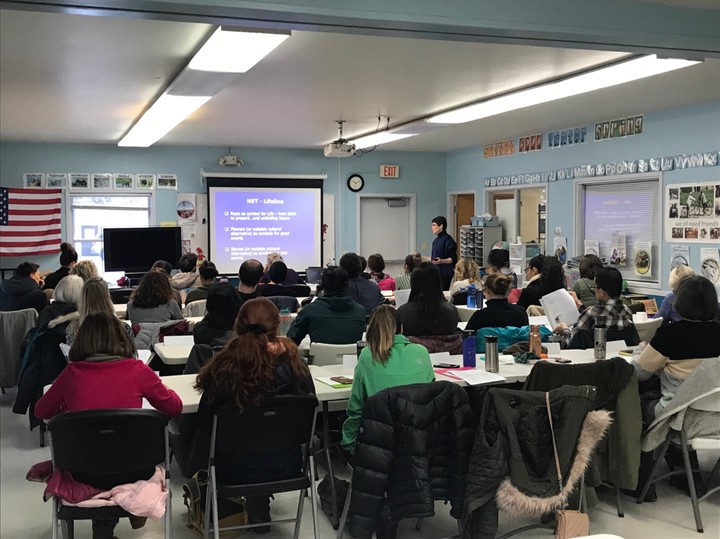Working Alongside Refugees in Mental Health (WARM)
 Photo from training
Photo from trainingIn a 2015 needs assessment of the Alaska mental health community’s capacity to service the mental health needs of refugees in the state, RAIS learned that Alaska’s mental health professionals had several perceived barriers to providing mental health services to refugees, including lack of training, experience, and supervision in providing therapy across cultures, and general concerns regarding cultural competence. While the assessment did reveal interest in the Alaska mental health community in meeting the mental health needs of refugees in the state, the capacity to meet those needs is lacking.
In Anchorage alone, 254 individuals have arrived since 2016, and RAIS currently works with 586 individuals from 33 countries. Through the WARM project, RAIS aims to create a sustainable peer support network of mental health professionals who will feel prepared to work with refugees to address mental health issues on a pro bono basis, thus expanding the network of professionals RAIS can refer clients to. The ultimate goal of WARM is to increase the availability of culturally-relevant, linguistically-appropriate, evidence-based mental health treatment for forced migrants in Alaska.